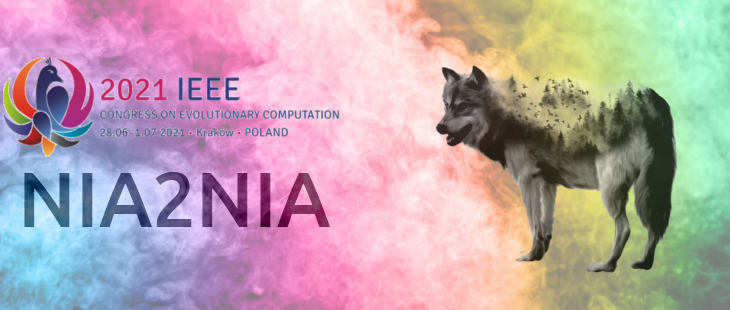Overview:
The last decade, the number of new stochastic nature-inspired algorithms has grown exponentially. The majority of these algorithms does not consist of a new optimization approach, but seems a lot similar to established ones, like Particle Swarm Optimization (PSO), Ant Colony Optimization (ACO) or Differential Evolution (DE). In contrast, a few studies noted this fact and suggested to hybridize and adapt the existing techniques instead of looking for a new inspiration. On that basis, a good practice would be to use the mechanisms of an algorithm to enhance the performance or to overcome the drawbacks of another one. For example, the scatter mechanism of Mine Blast Algorithm could be used to enhance diversification of solutions of PSO, in order to overcome trapping in local optima.
Scope:
This Special Session focuses on the investigation of mechanisms included in stochastic nature-inspired (or meta-heuristic) algorithms that could be used to modify the algorithmic process of another nature-inspired algorithm. The aim is to enhance the performance of existing nature-inspired algorithms and also, overcome drawbacks of the Vanilla algorithm, such as premature convergence and local optima trapping.
Furthermore, the proposal of such a modification to produce an even better method to solve a real-world application is encouraged. However, testing on CEC benchmark problems and functions is legitimate. In any case, non-parametric tests and appropriate tests to support the initial research hypothesis are needed.
This Special Session considers Nature-Inspired Algorithms based on the definition given by (K. C. B. Steer, A. Wirth, and S. K. Halgamuge, 2009): “The term nature refers to any part of the physical universe which is not a product of intentional human design”. Proposals of new methods are not encouraged and also, the study of algorithms that do not fall within the above definition (e.g. social-inspired approaches) should be avoided.
Topics of interest include, but are not limited to:
- Implementation of mechanisms that are part of nature-inspired algorithms
- Hybridization and adaptation of algorithms
- Premature convergence
- Exploration/exploitation balance
- Applications of modified nature-inspired on real-world problems
- Theoretical analysis of new nature-inspired algorithms
